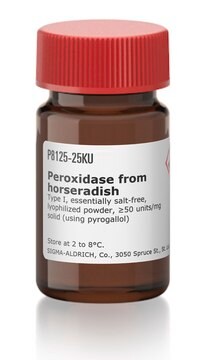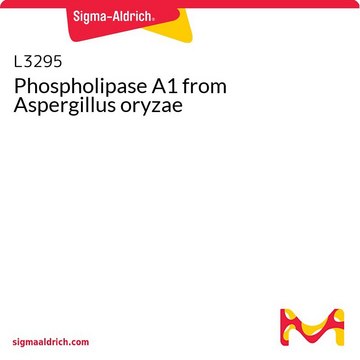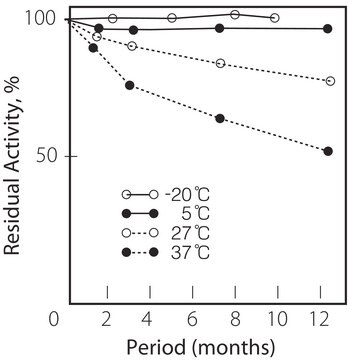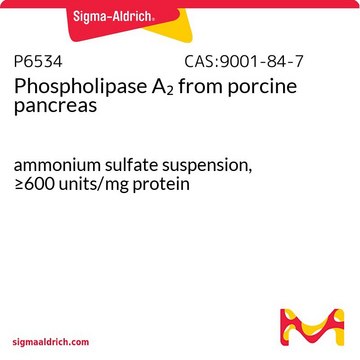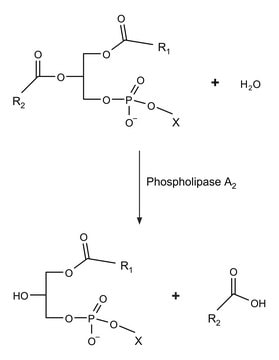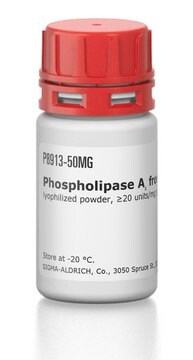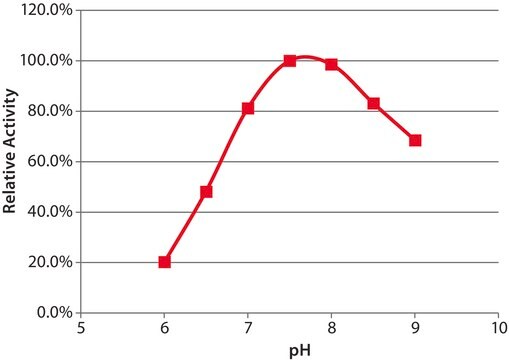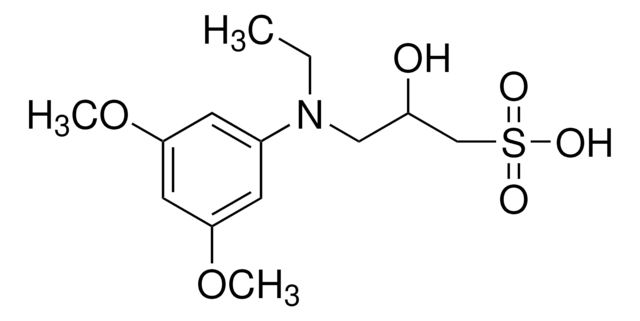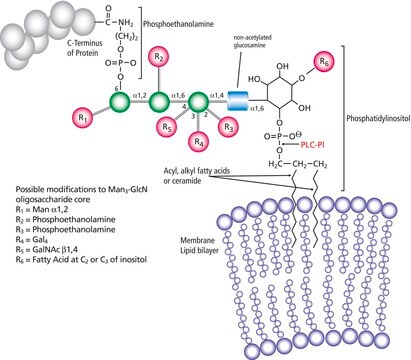P0065
Phospholipase D from Streptomyces chromofuscus
≥50,000 units/mL, buffered aqueous glycerol solution
Sinonimo/i:
Lecithinase D, Phosphatidylcholine phosphatidohydrolase
About This Item
Prodotti consigliati
Forma fisica
buffered aqueous glycerol solution
Livello qualitativo
Attività specifica
≥50,000 units/mL
PM
~60 kDa
Condizioni di spedizione
dry ice
Temperatura di conservazione
−70°C
Cerchi prodotti simili? Visita Guida al confronto tra prodotti
Descrizione generale
Applicazioni
Azioni biochim/fisiol
Definizione di unità
Stato fisico
Avvertenze
Danger
Indicazioni di pericolo
Consigli di prudenza
Classi di pericolo
Resp. Sens. 1
Codice della classe di stoccaggio
11 - Combustible Solids
Classe di pericolosità dell'acqua (WGK)
WGK 3
Dispositivi di protezione individuale
Eyeshields, Gloves, type N95 (US)
Certificati d'analisi (COA)
Cerca il Certificati d'analisi (COA) digitando il numero di lotto/batch corrispondente. I numeri di lotto o di batch sono stampati sull'etichetta dei prodotti dopo la parola ‘Lotto’ o ‘Batch’.
Possiedi già questo prodotto?
I documenti relativi ai prodotti acquistati recentemente sono disponibili nell’Archivio dei documenti.
I clienti hanno visto anche
Il team dei nostri ricercatori vanta grande esperienza in tutte le aree della ricerca quali Life Science, scienza dei materiali, sintesi chimica, cromatografia, discipline analitiche, ecc..
Contatta l'Assistenza Tecnica.


